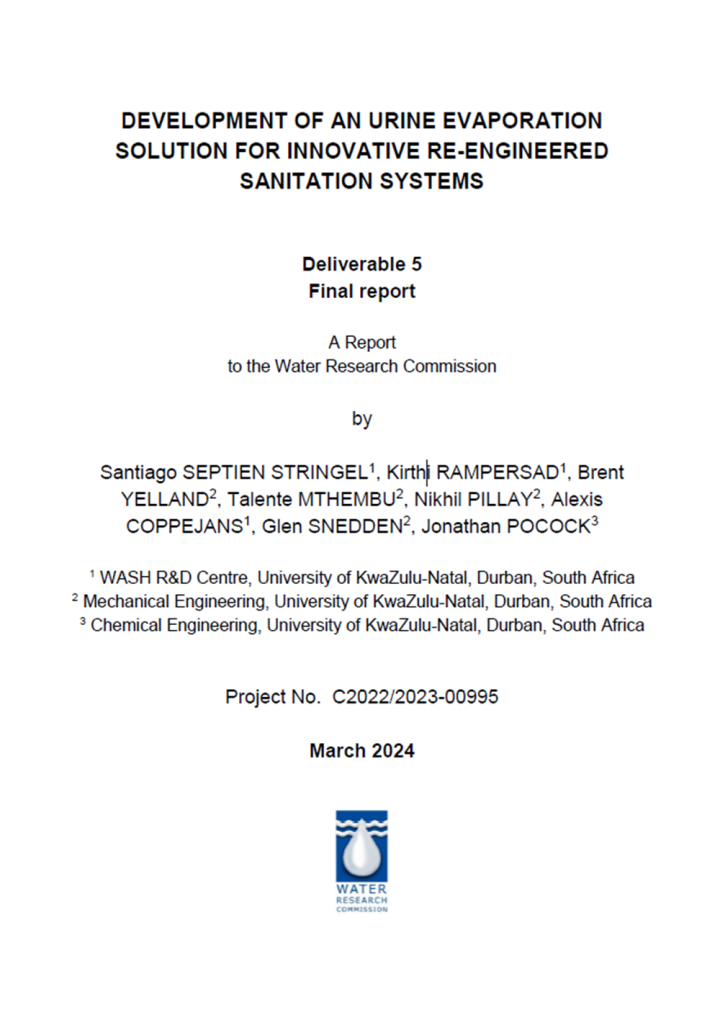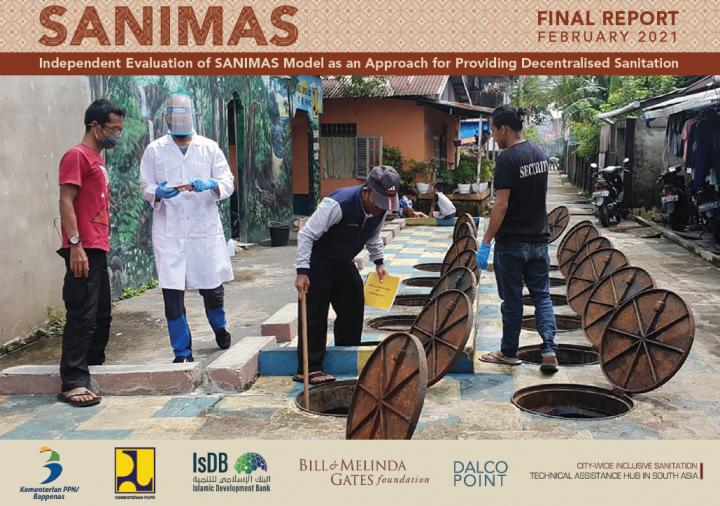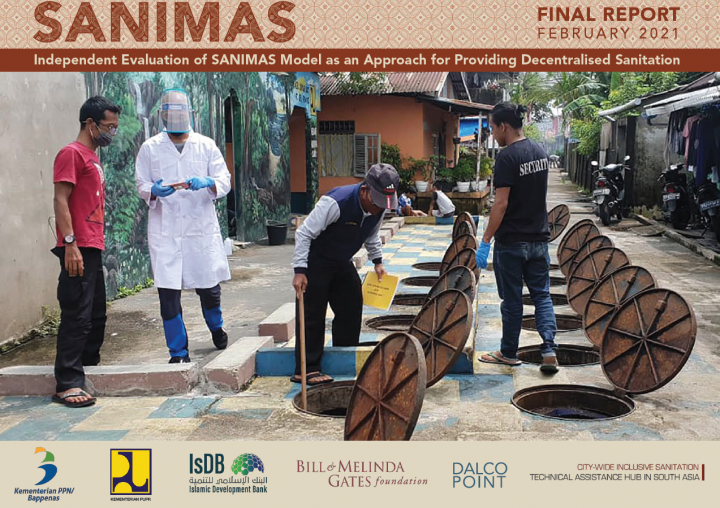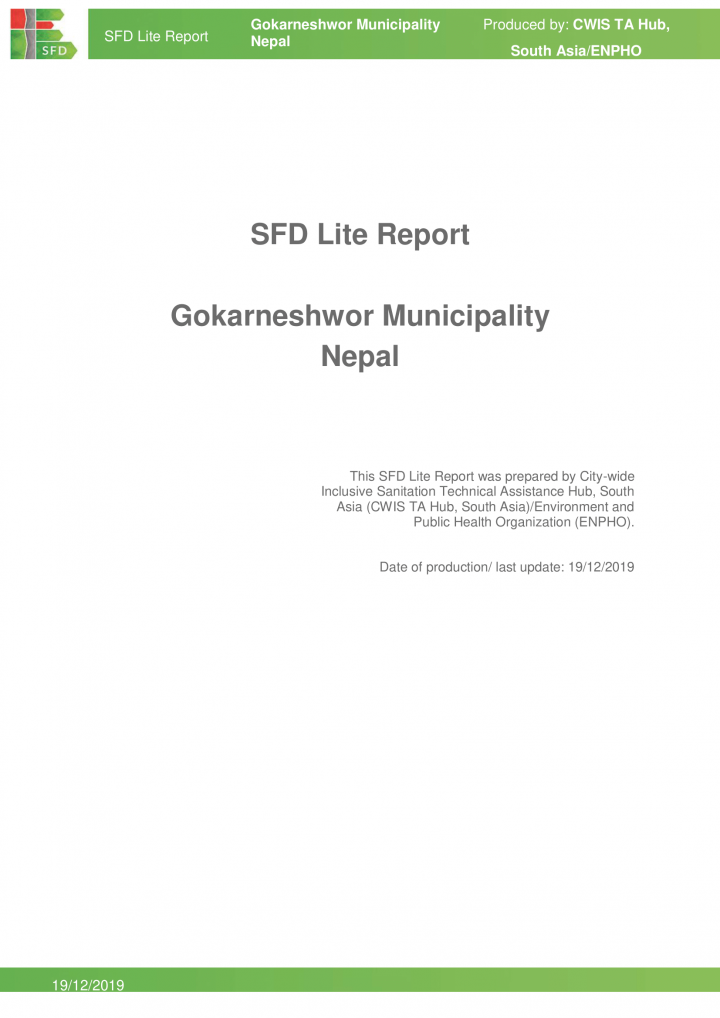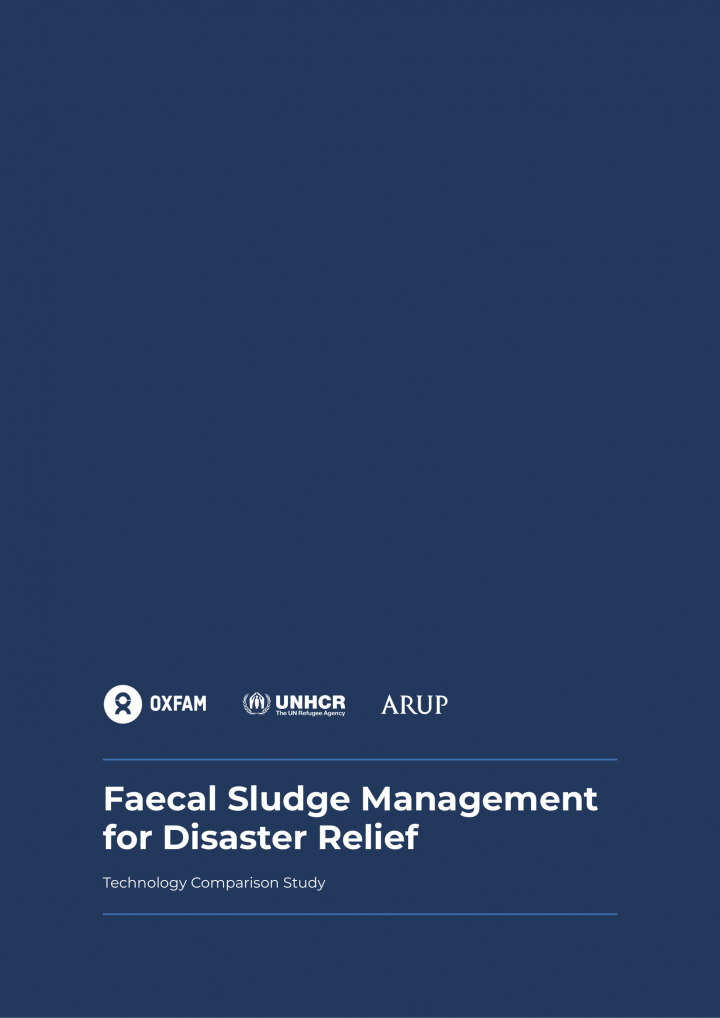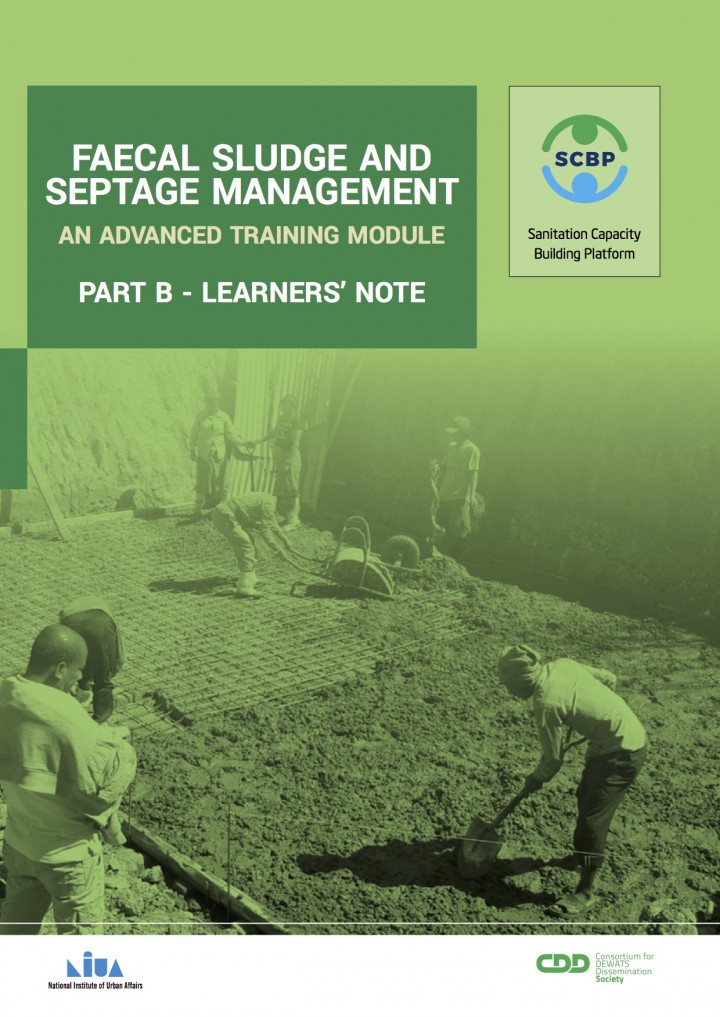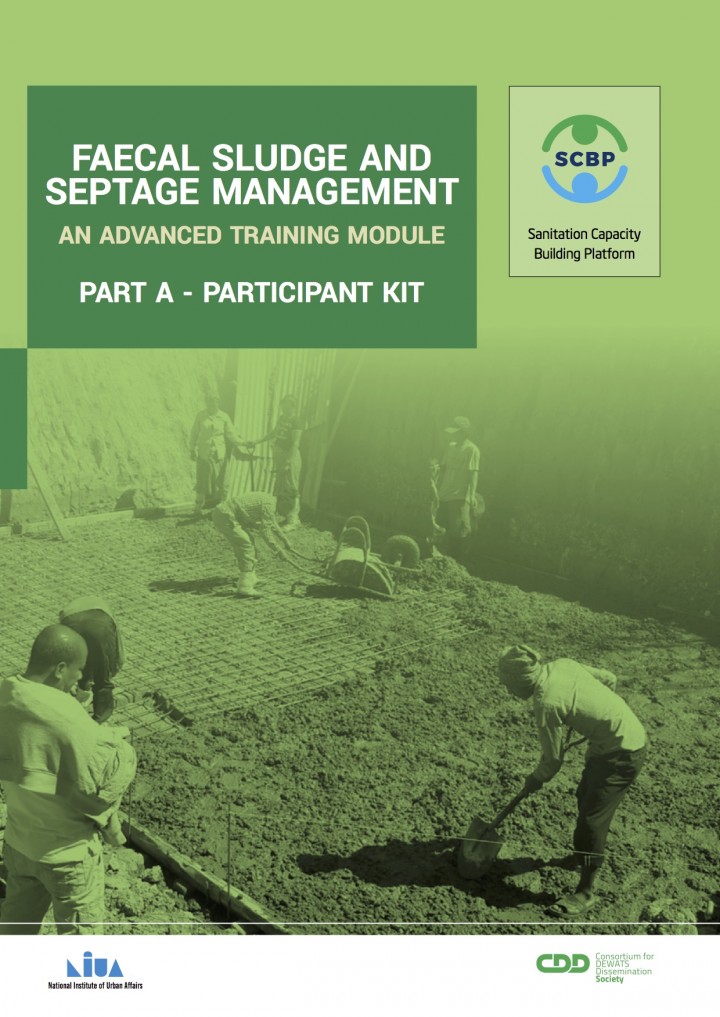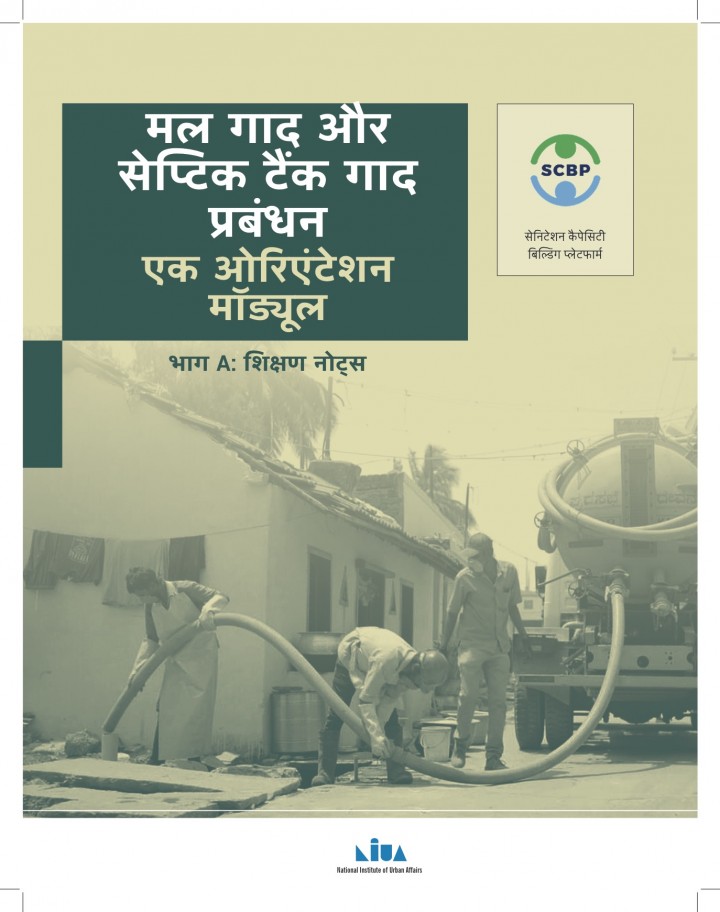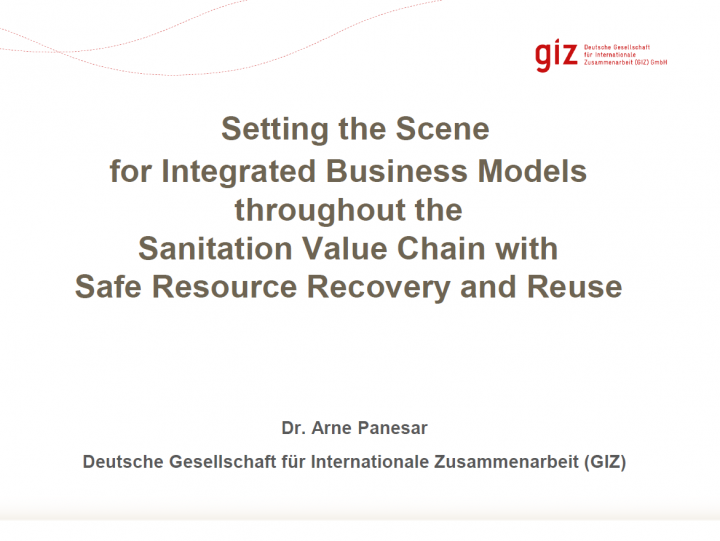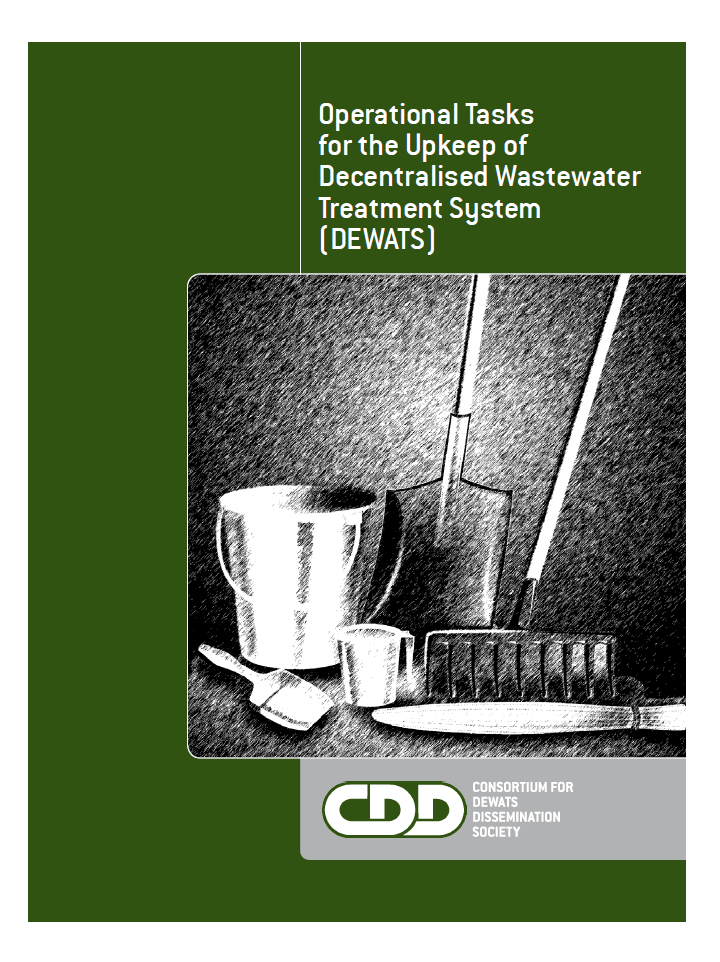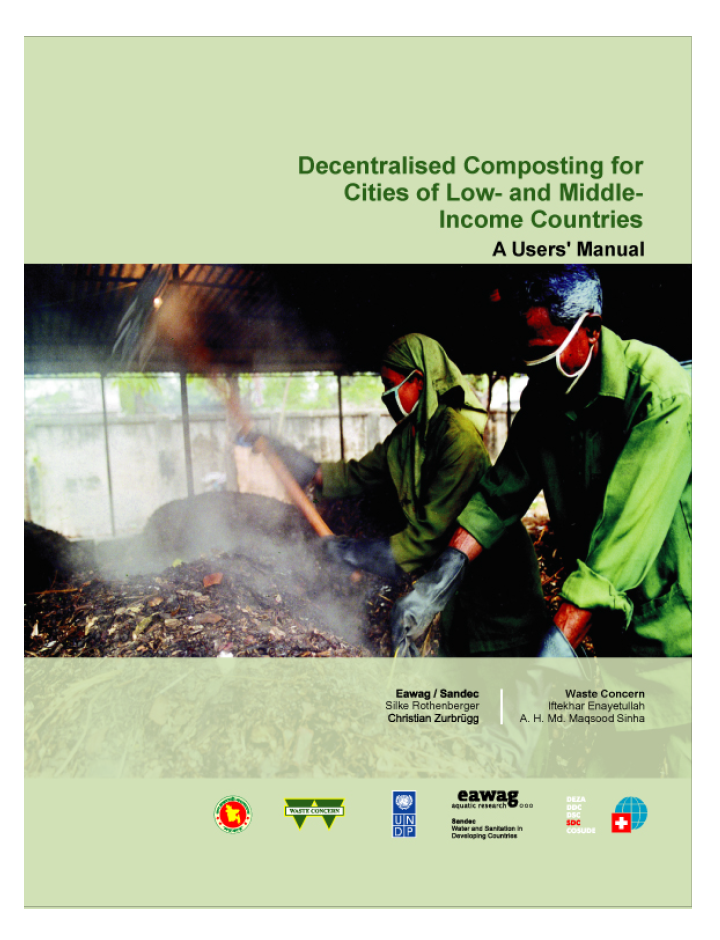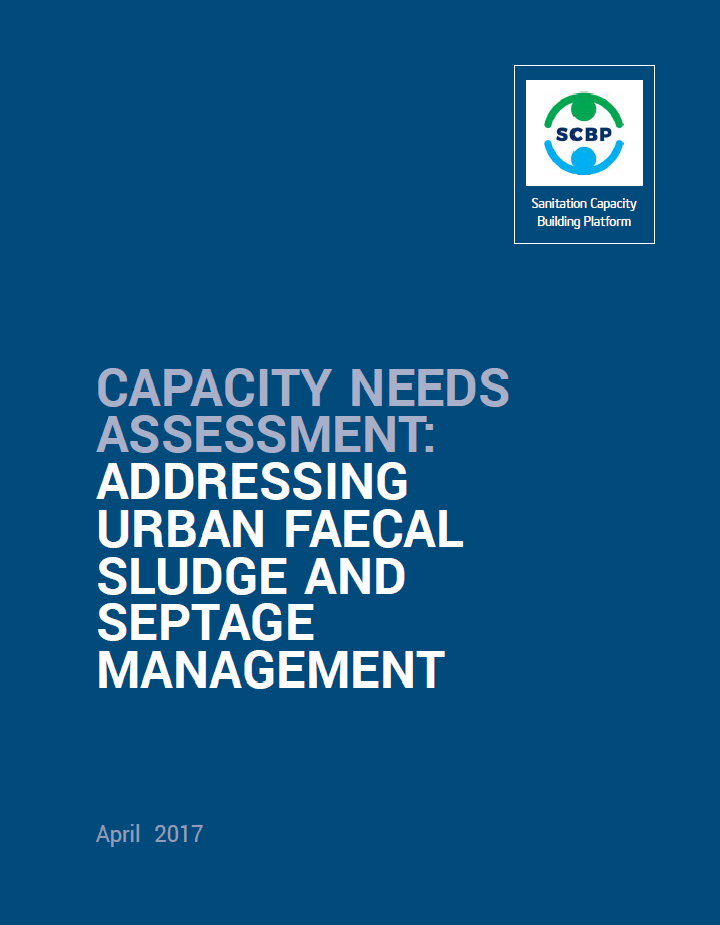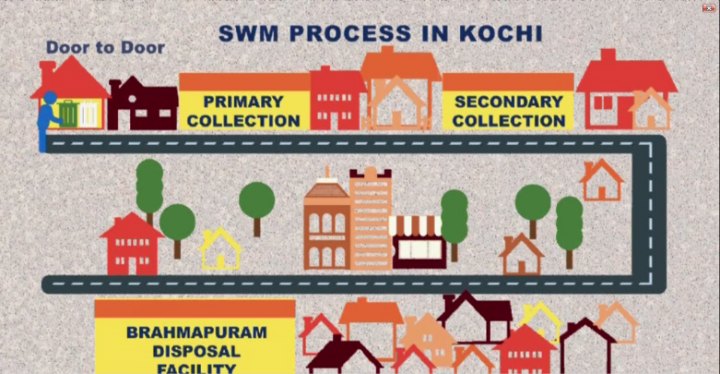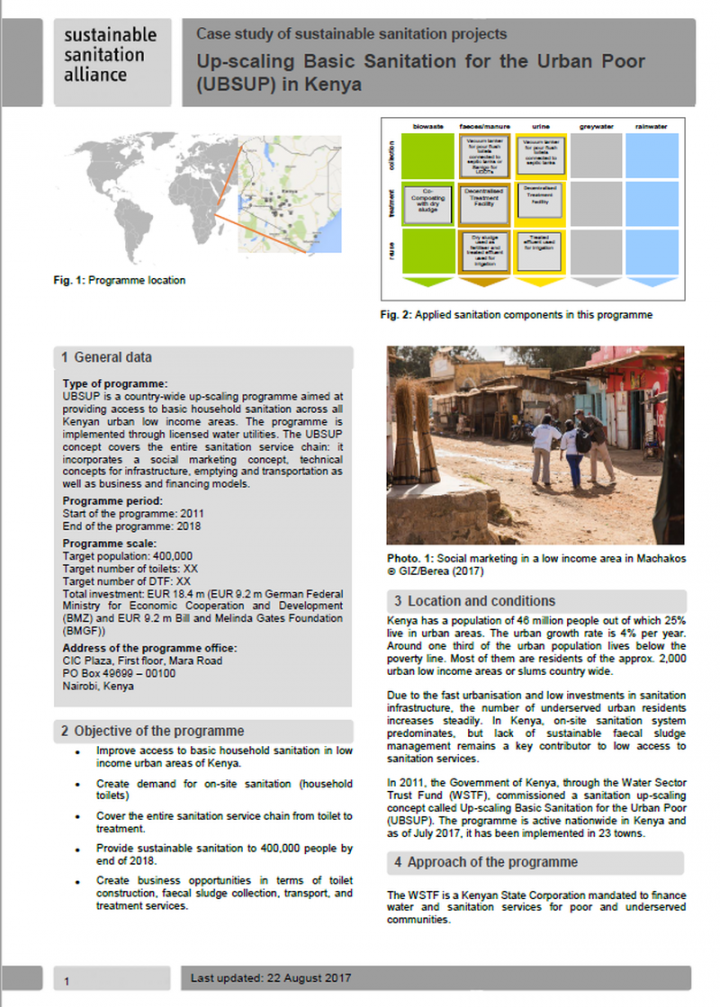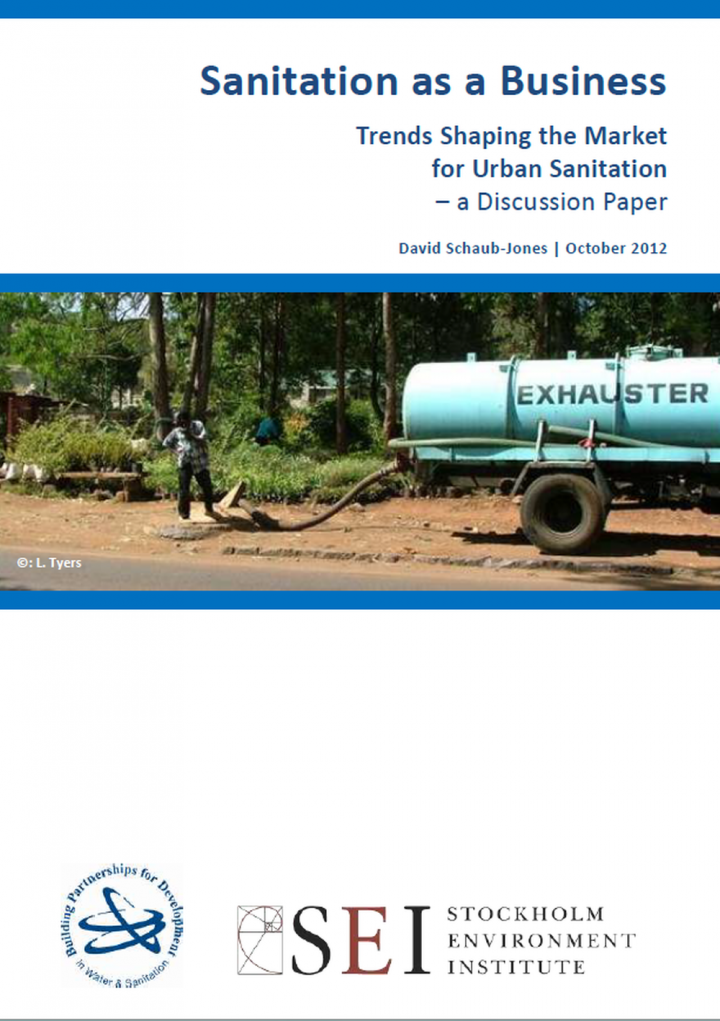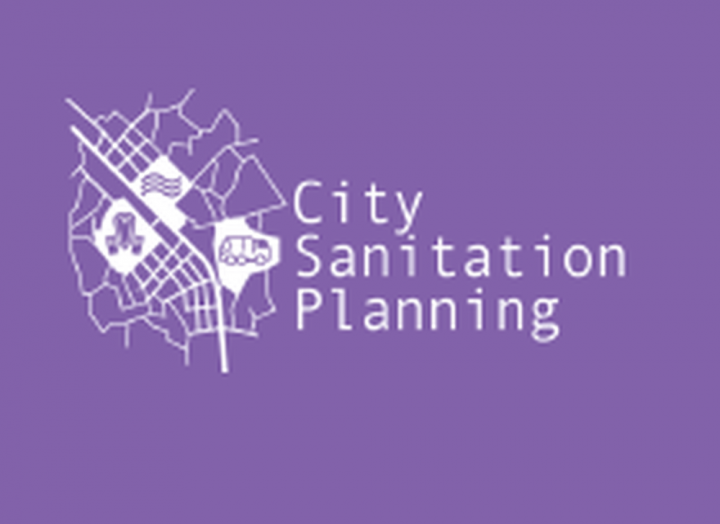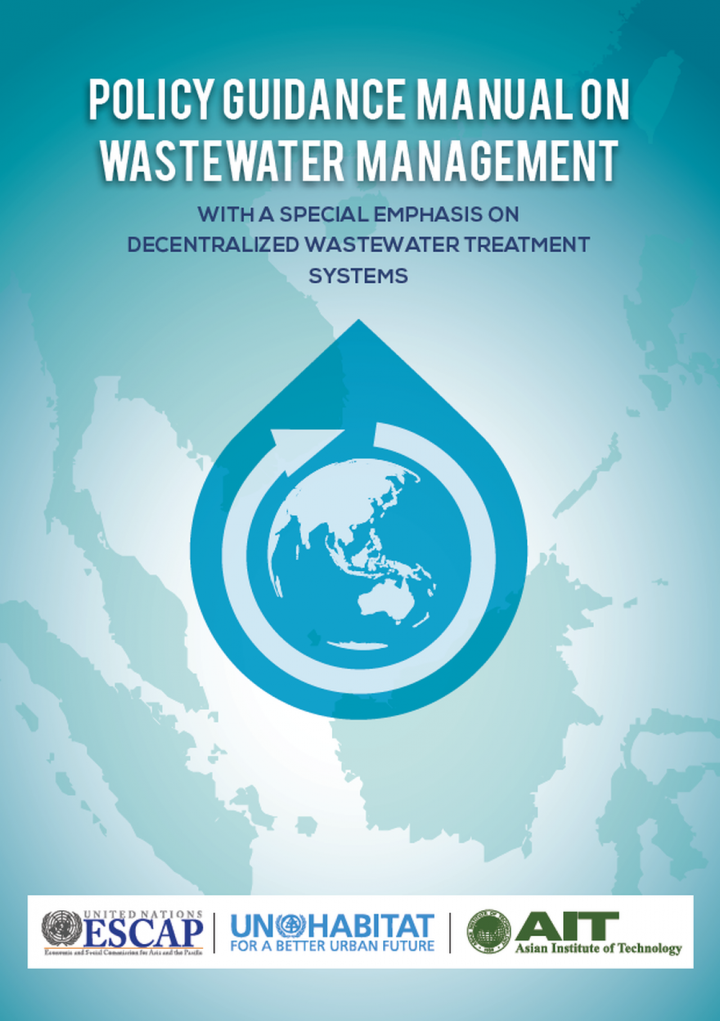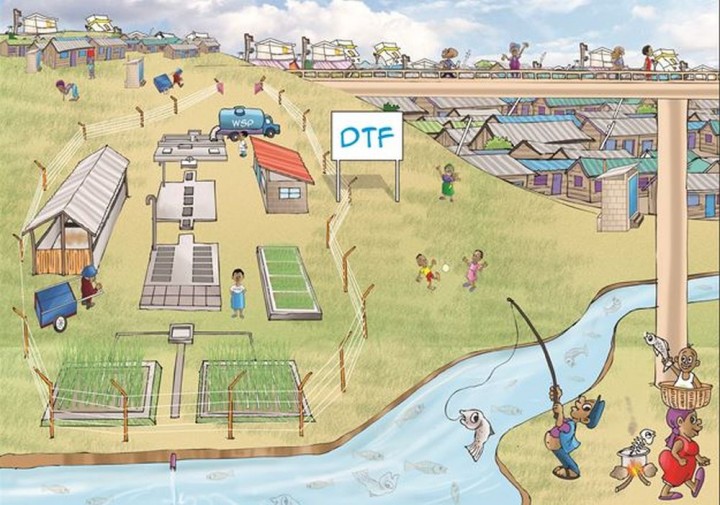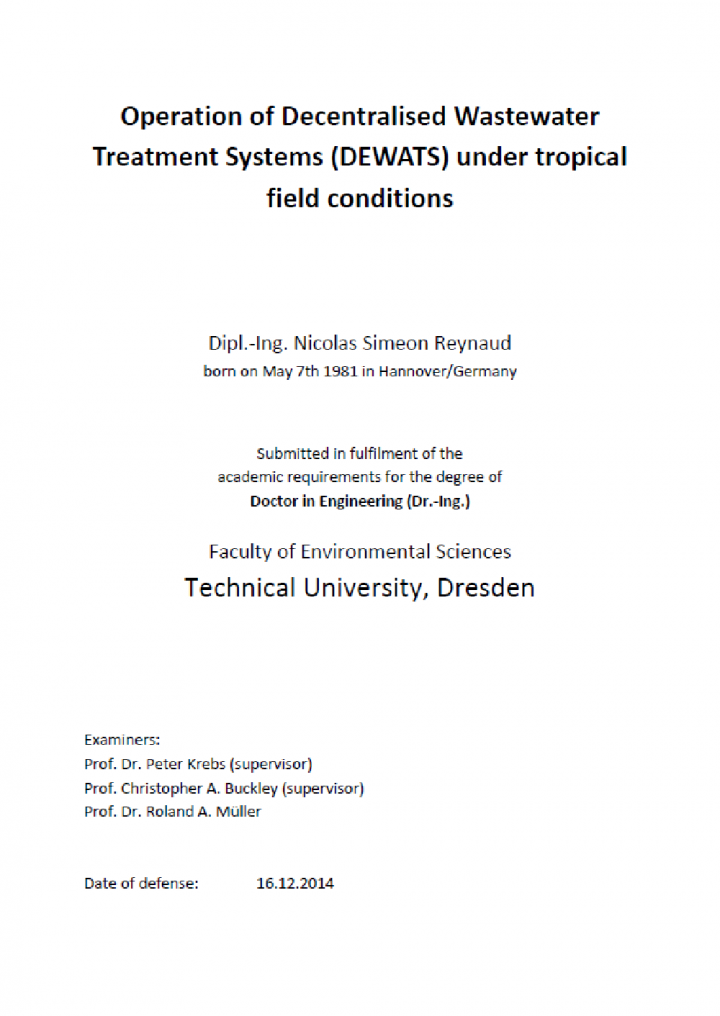Santiago Septien Stringel, Kirthi Rampersad, Brent Yelland, Talente Mthembu, Nikhil Pillay, Alexis Coppejans, Glen Snedden, Jonathan Pocock (2024) Development of an urine evaporation solution for innovative re-engineered sanitation systems
In the sector of wastewater management and sustainable sanitation, the practice of urine separation and valorisation can offer reuse water and nutrients for crop production. However, the effective realization of urine separation necessitates the concurrent development of urine treatment systems. While membrane filtration techniques have been employed to concentrate urine, these options are unable to concentrate urine beyond a certain threshold. This limitation underscores the […]
Bulson, P., Muslimah, S., Reynaud, N., Blackett, I., Campbell, A. V., Arsyini, I. (2021) Independent Evaluation of SANIMAS Model as an Approach for Providing Decentralised Sanitation
According to RPJMN 2020–20241 figures, in 2018 almost 75 percent of the Indonesian population has access to improved sanitation nationally. This includes almost 7.5 percent classified as safely managed sanitation services based on Sustainable Development Goals (SDGs) 2030 definitions. These figures are impressive considering the low base of sanitation coverage with which the country has been evolving from. The Indonesian government, IsDB, Bill & Melinda Gates […]
CWIS TA-Hub (2021) SANIMAS - Final Report Independent Evaluation of SANIMAS Model as an Approach for Providing Decentralised Sanitation
According to RPJMN 2020–2024 figures, in 2018 almost 75 percent of the Indonesian population has access to improved sanitation nationally. This includes almost 7.5 percent classified as safely managed sanitation services based on Sustainable Development Goals (SDGs) 2030 definitions. These figures are impressive considering the low base of sanitation coverage with which the country has been evolving from. Since the early 2000s, the Indonesian government has implemented important policy interventions […]
CWIS TA Hub & ENPHO (2019) SFD Lite Report - Gokarneshwor Municipality, Nepal
Gokarneshwor Municipality is located in Kathmandu District in Province No. 3 of Nepal. The municipality consists of 9 wards with the total population of 107,351 people residing in 27,106 households. Majority of the population are dependent on public taps as the main source of drinking water. The remaining population are dependent on spring water, tap water (bore water) and wells. Most of the population in […]
Various authors (2019) FSM5 - 5th International Faecal Sludge Management Conference Materials
Presentations (download from conference website, see external link below, or go to: https://fsm5.susana.org/en/downloads/conference-materials): Conference convenors: Bill & Melinda Gates Foundation BORDA Eawag-Sandec Deutsche Gesellschaft für Internationale Zusammenarbeit (GIZ) GmbH Inclusive Sanitation in Practice (IPS) Sustainable Sanitation Alliance (SuSanA) University of KwaZulu-Natal University of Technology Sydney Water Research Commission (WRC) DAY 1, OPENING PLENARY 1. BAWA, K., “The Ngor Declaration on Sanitation and Hygiene” 2. NAIDOO, D., “Building the World’s First Sanitation Unicorn” **DAY 1, TRACK 1: RESEARCH […]
Arup and Oxfam (2019) Faecal Sludge Management for Disaster Relief Technology Comparison Study
On behalf of Oxfam, Arup have conducted a technical comparison study on Faecal Sludge Management at the Rohingya camps close to Cox's Bazar (CXB), Bangladesh. The aim of the study is to draw conclusions on best practice FSM for disaster relief, from evidence gathered through practical experience. The study used existing available data to inform the analysis and in many cases these datasets are limited. […]
NIUA (2018) Faecal Sludge and Septage Management An Advanced Training Module (Part B: Learners' Note)
About the Training Modules Training Modules on decentralsid sanitation, septage and waste water have been developed, tested and delivered by SCBP during 2016-17, during training of government officials from UP, Rajasthan, MP, Telengana, Bihar, Karnataka, West Bengal, Jharkhand and Chattisgarh. These Modules have also been used in Training of Trainers(ToTs) of Amrut Nodal Agencies, Academia, Students, NGOs and Private Sector. Modules are in 3 Parts […]
NIUA (2018) Faecal Sludge and Septage Management An Advanced Training Module (Part A: Participant Kit)
About the Training Modules Training Modules on decentralised sanitation, septage and wastewater have been developed, tested and delivered by SCBP during 2016-17, during training of government officials from UP, Rajasthan, MP, Telengana, Bihar, Karnataka, West Bengal, Jharkhand and Chattisgarh. These Modules have also been used in Training of Trainers(ToTs) of Amrut Nodal Agencies, Academia, Students, NGOs and Private Sector. Modules are in 3 Parts : […]
NIUA (2017) Faecal Sludge and Septage Management An Orientation Module (Part A: Learning Notes) (In Hindi)
About the Training Modules Training Modules on decentralised sanitation, septage and wastewater have been developed, tested and delivered by SCBP during 2016-17, during training of government officials from UP, Rajasthan, MP, Telengana, Bihar, Karnataka, West Bengal, Jharkhand and Chattisgarh. These Modules have also been used in Training of Trainers(ToTs) of Amrut Nodal Agencies, Academia, Students, NGOs and Private Sector. Modules are in 3 Parts : […]
Various Authors (2014) Integrated Business Models throughout the Sanitation Value Chain with Safe Resource Recovery and Reuse Conference materials
The Integrated Business Models throughout the Sanitation Value Chain with Safe Resource Recovery and Reuse seminar combined the highlights of research on over 60 successful business cases and extracted business models for resource recovery and reuse in developing countries with a discussion on their applicability in a range of settings with practitioners and entrepreneurs. The Sanitation Safety Planning Manual was also presented to illustrate […]
CDD Society (2008) Operational Tasks for the Upkeep of Decentralised Wastewater Treatment System (DEWATS)
This Manual is intended for use by the beneficiaries of DEWATS, in particular caretakers and operators. Each operational task is addressed in terms of where and when it will occur, how the task should be performed and why it is needed. Simple information about DEWATS modules and how they function is outlined in the Appendix 1.0. For further information which may be beyond the scope […]
Rothenberger, S., Zurbrügg, C., Enayetullah, I., Sinha, A.H.M. (2006) Decentralised Composting For Cities Of Low-And Middle-Income Countries A Users’ Manual
This manual has been prepared for use by local nongovernmental and community-based organisations (e.g. resident initiatives) and relevant persons in urban local governments. Private organisations or entrepreneurs interested in organic waste recycling may also benefit from this book. It may also help development agencies and other government sectors in planning waste management and composting programmes. It can be used as a basic source of information […]
NIUA (2017) Addressing Urban Faecal Sludge and Septage Management Capacity Needs Assessment
Recognising city-level capacity limitations for decentralised sanitation planning and implementation in India, the Ministry of Urban Development (MoUD) appointed the National Institute of Urban Affairs (NIUA) as the anchor organisation for a Sanitation Capacity Building Platform (SCBP) to support cities in their sanitation planning and implementation. NIUA partnered with CAWST,2 a capacity development organisation, to design and initiate the SCBP with the goal of building […]
GIZ (2018) Best Practices on Solid Waste Management in India English and Hindi Versions - SNUSP II
Case study tutorials under the Swachh Bharat Mission of the Government of India. The Kochi module reflects the best practices on source segregation of waste as exemplified by the Kochi Municipal Corporation. The case study shows how source segregation, composting, stringent legal system coupled with multi-stakeholder participation leads to effective waste managemnet in urban places which are devoid of adequate landfill spaces. The Panaji module […]
Dubois, A. (2017) Up-scaling Basic Sanitation for the Urban Poor (UBSUP) in Kenya
This case study describes the Upscaling Basic Sanitation for the Urban Poor (UBSUP) programme, which is a country-wide up-scaling intervention aimed at providing access to basic household sanitation in urban low income areas of Kenya. UBSUP is anchored at the Water Sector Trust Fund with technical support from GIZ and funding from the Bill and Melinda Gates Foundation and the German Government through the German […]
Schaub-Jones, D. (2012) Sanitation as a business Trends shaping the market for urban sanitation – a discussion paper
In November 2011, Jefferson County, Alabama made world news by filing for the largest-ever American municipal bankruptcy. Bad housing loans? Pension liabilities too great? No, it was the huge cost of investing in new sewers that tipped them over the edge. Around the same time, a thousand miles to the North, the municipalities on Cape Cod, Massachusetts, were holding public meetings to discuss options for dealing […]
Bright-Davies, L. et al. (2016) City sanitation planning package for Dar es Salaam
This City Sanitation Planning (CSP) package approach for Dar es Salaam was created in response to the need for a simple, fast and flexible tool for determining “which sanitation solutions go where”. CSP has the following advantages: • Can keep up with rapid urban growth and is fast to update as new data (e.g. satellite imagery, open-street maps, etc.) becomes available • Broad and inclusive coverage of all […]
ESCAP, UN-Habitat, AIT (2015) Policy guidance manual on wastewater management with a special emphasis on decentralized wastewater treatment systems
The Policy Guidance Manual on Wastewater Management with a special emphasis on Decentralised Wastewater Treatment Systems (DEWATS) highlights adequate policy and sustainable practices from the South-East Asia (SEA) region and worldwide. The primary objectives of the Policy Guidance Manual on DEWATS for SEA are three-fold: (a) to guide national and local policy-makers and experts of SEA in enabling pro-poor policies, strategies, legal, institutional, social, environmental and […]
WSTF (2015) Key documents to implement UBSUP
This library entry contains key documents involved in the implementation of the UBSUP programme, from the social marketing for improved toilet at household level to the construction and operation of the sanitation infrastructures (toilet and Decentralised Treatment Facility). Note that more documents are available on the SafiSan toolkit located in the WSTF website, see link below. As an attempt to tackle the challenge of urban sanitation […]
Reynaud, N. (2015) Operation of Decentralised Wastewater Treatment Systems (DEWATS) under tropical field conditions PhD thesis
Decentralised Wastewater Treatment Systems (DEWATS) such as disseminated by the Bremen Overseas Research and Development Association (BORDA) are increasingly being recognized by decision makers across the world as an option for service delivery in densely populated low-income areas. However, little practical experience has been gathered methodologically on basic engineering and performance aspects surrounding these systems. This thesis investigates full-scale anaerobic reactors of communal DEWATS implemented in […]
